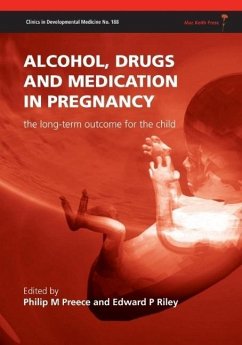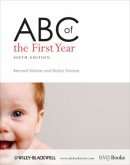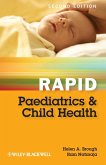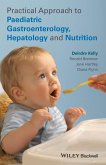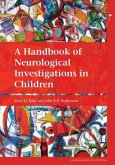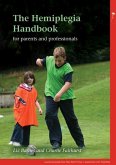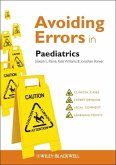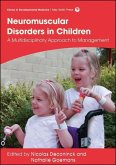Clinics in Developmental Medicine No. 188
This book documents the consequences of the exposure of infants to the influence of intrauterine chemicals. In setting out the evidence for these outcomes, the authors demonstrate that decisions about care and management can and should be made as early as possible. This should allow professionals to provide protective management and prevent the delays that are so often seen in this area of medical and social care.
The international team of contributors sets out to inform the reader of the potential risks to infants exposed to a range of intrauterine chemicals that are potentially neuroactive, including medicinal drugs such as antiepileptics, antidepressants and antipsychotics, as well as drugs of abuse, including alcohol, opiates, and recreational drugs such as cannabis and tobacco. They review the teratogenic action of some of the chemical processes and the relationship of exposure to the stage of pregnancy. Some agents alter anatomic structure; others alter the chemical balance of neurotransmitters and may thus alter the regulation of brain function, with profound effects on the child's behaviour and propensity to behavioural disturbances. The book explores strategies to support these children and those who care for them, including statutory agencies.
Readership
Paediatricians, neonatologists, obstetricians, gynaecologists, child and adolescent psychiatrists and psychologists, those working in child care and child protection.
This book documents the consequences of the exposure of infants to the influence of intrauterine chemicals. In setting out the evidence for these outcomes, the authors demonstrate that decisions about care and management can and should be made as early as possible. This should allow professionals to provide protective management and prevent the delays that are so often seen in this area of medical and social care.
The international team of contributors sets out to inform the reader of the potential risks to infants exposed to a range of intrauterine chemicals that are potentially neuroactive, including medicinal drugs such as antiepileptics, antidepressants and antipsychotics, as well as drugs of abuse, including alcohol, opiates, and recreational drugs such as cannabis and tobacco. They review the teratogenic action of some of the chemical processes and the relationship of exposure to the stage of pregnancy. Some agents alter anatomic structure; others alter the chemical balance of neurotransmitters and may thus alter the regulation of brain function, with profound effects on the child's behaviour and propensity to behavioural disturbances. The book explores strategies to support these children and those who care for them, including statutory agencies.
Readership
Paediatricians, neonatologists, obstetricians, gynaecologists, child and adolescent psychiatrists and psychologists, those working in child care and child protection.

